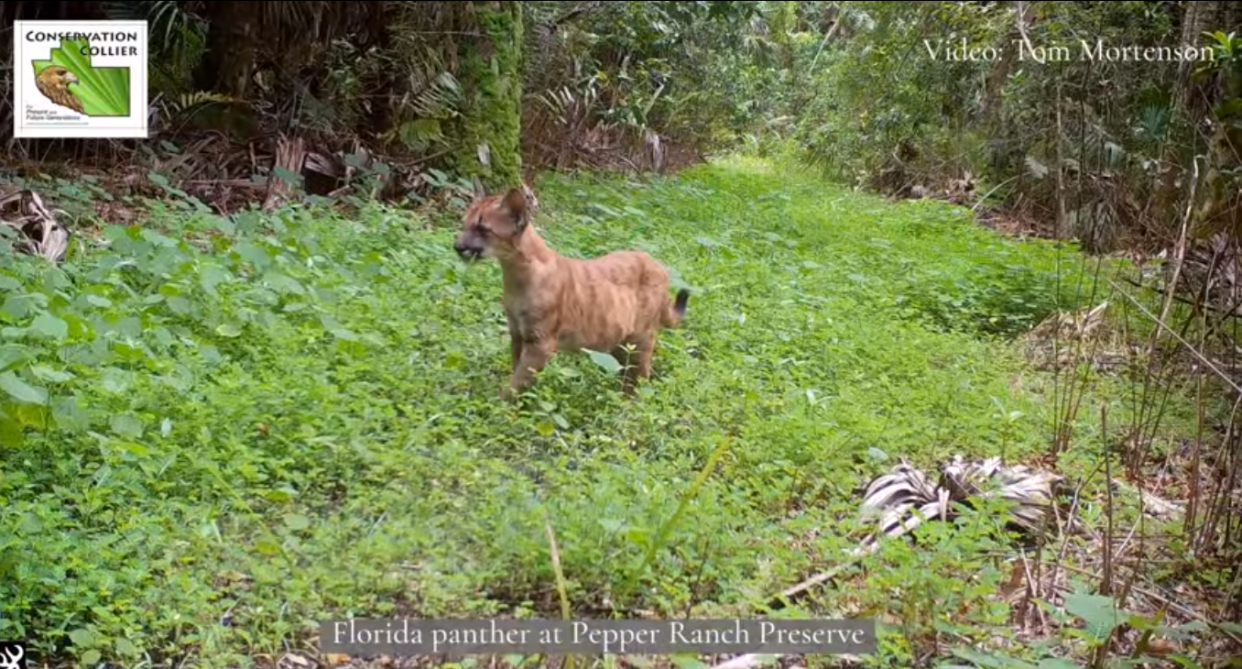Conservation Collier won't be gutted, but board considers changes to popular program

Collier residents love their conservation lands: They have voted time and again to tax themselves to pay for them – and show up in force when their conservation program appears threatened.
That happened Tuesday, as county commissioners considered a number of changes to the Conservation Collier ordinance amid passionate public support for the program. The final vote will be March 26.
After a series of email blasts sounded the alarm, supporters turned out in force at the regular commission meeting. Their message: We’re watching you, and we don’t want a repeat of last year.
In October, commissioners voted that they could use $53 million of the program's funds to fill other gaps in this year's budget, after they'd cut property taxes.
Later, commissioners changed the Conservation Collier ordinance to give the board the "express power" to use the program's money for "any other county purpose deemed to be in the best interest of the public." That move drew outrage from advocates, who pointed out voters had overwhelmingly supported the program in three different referendums since 2002.
From last year: Commissioners formalize 'right' to divert Conservation Collier money
Commissioners have yet to pay the diverted money back, though they hope to with their effort to adopt a priority-based budget next year.
On Monday, Texas-based Tyler Technologies announced it has signed an agreement with the county for the use of the company's priority-based budgeting solution.
The priority-based budgeting approach is designed to better align resources and funding with community priorities and outcomes, shifting the focus to accountability for program results.
“We will be able to achieve improved budget priority alignment, efficiency, cost containment, accountability, and most importantly, transparency to our staff and our community," said Chris Hall, commission chairman, in a statement.
'This is a program everybody loves'
The message from Conservation Collier supporters came through loud and clear before and during the hearing, Commissioner Rick LoCastro emphasized. "Do you know how many people have reminded us about the 77% (approval)? And that this is a program everybody loves and all that?"
Tuesday, some 50 people signed up to speak, but more than 30 ceded their time to Brad Cornell, Audubon Western Everglades policy associate.
Cornell noted the county had already made strides in speeding up the land acquisition process, and several of the proposed changes to the ordinance would build upon those improvements. "I think we have made a lot of progress," he said.
Cornell picked apart the proposed changes, supporting some of the revisions, while questioning others.
He argued there was no need to add any references to diverting the Conservation Collier funds for other uses, as the county attorney had already determined the board could do it – and the board had exercised that right twice, including last fall's controversial decision.
The program's unspent funds were also tapped for recovery from Hurricane Irma, then reimbursed.
The mention of the ability to divert funds in the ordinance would only convey a message that the board doesn't support the program, Cornell asserted, adding that's clearly "false."
Commissioners took a series of votes on the proposed changes, which will come back in two weeks for a final decision, based on the direction.
While the right to divert the money appeared four times as part of the language adjustments proposed by county staff, the board voted to include that terminology only once.
'A one-time thing we did'
Commissioners agreed to add that any money removed from the program would be replaced "as soon as practicable" to the verbiage, as suggested by Cornell, if the board didn't agree to remove all references to diverting funds as his environmental group, and many others, wanted.
While commissioners have expressed their intent to reimburse the money they took from the conservation program this year, they haven't yet figured out how they'll replenish it. However, Commissioner Hall noted, "That was a one-time thing we did, never to be done again ... It was never our intention or our motive to rob Conservation Collier and use it as a slush fund."
One of the major changes unanimously supported by commissioners would allow them to set the millage, or tax rate, for the program each year, as well as the percentage of revenues going into each of the two funds, one for acquisitions and the other for maintenance.
They also supported changes that would allow Conservation Collier land to be sold, as long as proceeds return to the program.
Commissioners agreed on several other revisions, including using eight criteria to evaluate land acquisitions, adding a few new ones, in an effort to improve the screening and approval process.
They also voted in favor of having signed contracts for land buys go directly to the county commission for approval, with no need for a review by the Conservation Collier Land Acquisition Advisory Committee first, as a way to speed up purchases.
A majority of the board did not agree to bypass the advisory committee in any other way.
The discussion was productive, concluded several commissioners, including LoCastro. Taking a closer look at the program, after diverting the funds, led to positive changes, shining a light on what wasn't working with it, he and others stated.
In the end, LoCastro urged citizens to "help us keep this program clean and moving forward … We need citizens to watch it closely – and they are."
He added: "I’m so proud of what we’ve all done – citizens definitely included, who stormed the podiums ‘cause they thought we'd raided Conservation Collier, when in reality we put a spotlight on it, overhauled the program and did a lot more good things today.”
This article originally appeared on Fort Myers News-Press: Conservation Collier won't be gutted, commissioners say, just refined

